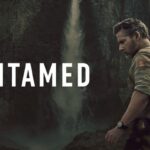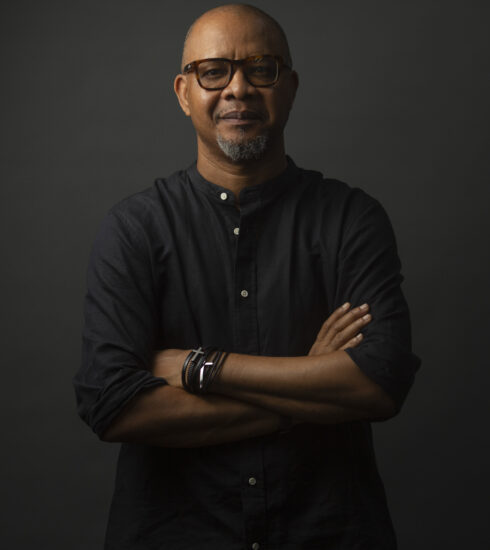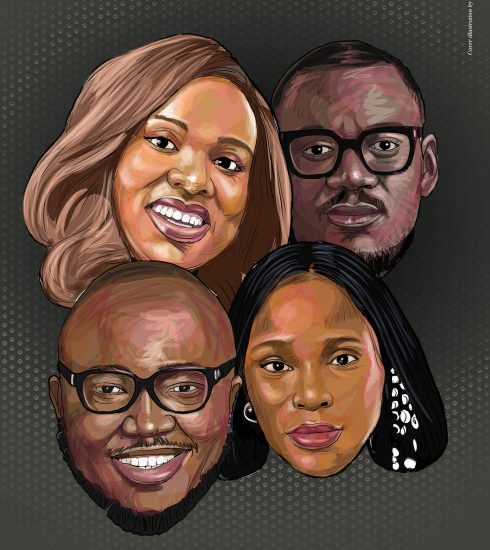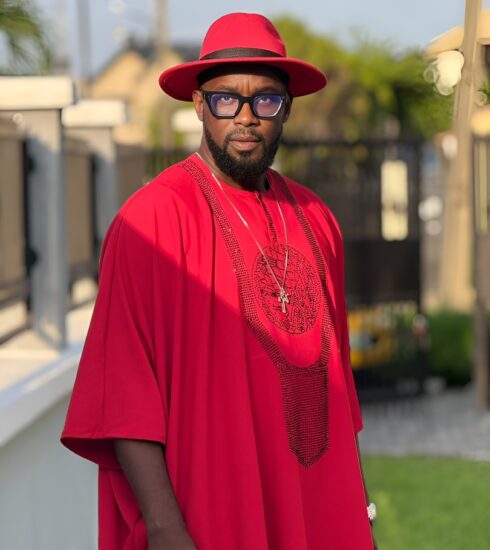Joel Kachi Benson on Storytelling, Social Impact, and the Emmy Win
Documentary filmmaking has evolved significantly from merely depicting real-life events to serving as a catalyst for profound discussions and catalysing genuine change. Today, African stories are not just being told, they are leading on global platforms. From emotional stories of survival to inspiring tales of hope, filmmakers across the continent are using documentaries to amplify unheard voices and shine a light on what truly matters. The world is finally watching and listening to Africa’s truth, told through our own lens.
One of the leading voices in this movement is Nigerian filmmaker and virtual reality storyteller Joel Kachi Benson. Over the years, he has used his camera not just to capture moments, but to create impact. From Nigeria’s first virtual reality documentary In Bakassi, to the award-winning Mothers of Chibok, and now Madu, which just won the 2025 Emmy Award for Outstanding Arts and Culture Documentary, Benson’s work is changing the game. His stories are not just powerful, they are personal. He believes that stories can change lives, and that belief shows in every frame he creates. For him, filmmaking is more than a career; it’s a calling.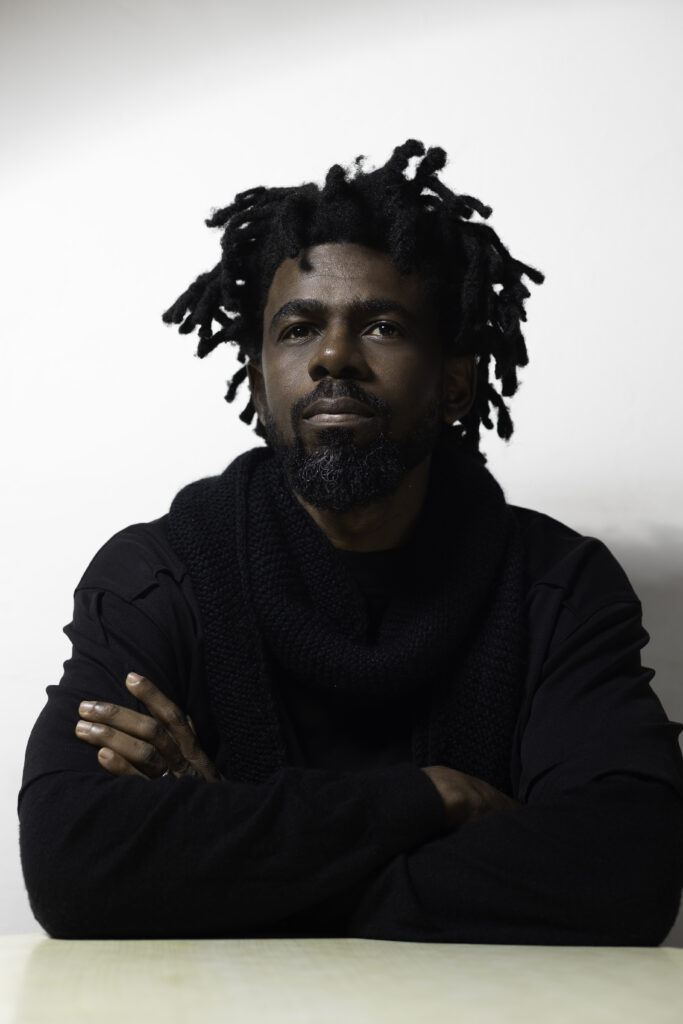
In this interview with THEWILL DOWNTOWN’s Dorcas Akintoye, Joel Kachi Benson discusses his journey into documentary filmmaking, the power of storytelling, what winning an Emmy means to him, the making of Madu, and why using film to create social change will always be at the heart of everything he does.
You’ve carved a niche for yourself as one of Nigeria and Africa’s foremost documentary and virtual reality filmmakers. Can you take us back to where it all began? What inspired your journey into storytelling, especially through the lens of documentary filmmaking?
Years ago, I used to like to do all kinds of content: music videos, weddings, and even conference events. I was doing everything. But I did get an opportunity at one time to create a series of short, I’ll call them short videos, short documentaries around inspiring people. So they’re like, you know, people who are successful Nigerians, grass-to-grace stories, that kind of stuff. And I really found their stories very inspiring. So I was like, wow, I would love to do more of this kind of stuff. It gave me a lot more personal satisfaction than any other content that I’ve created before. And I think that’s really how I got into like factual filmmaking. I just suddenly found that real people, real stories held a certain fascination for me. Obviously, that has evolved over the years into what it is now, which is where I’m so focused on, yes, factual filmmaking, but factual filmmaking for impact, like social impact. But back then, I was more like, how many of such inspiring stories can I find and tell and share with the world? So that’s really how I got started.
Over the years, your work has spotlighted stories that many would rather overlook. What has kept you grounded and committed to telling such emotionally intense, socially conscious stories?
Film storytelling is a very powerful tool for social change. I truly think it does have the ability to move the needle. And so what has kept me grounded is the fact that I can use my stories to spotlight overlooked issues. I can use my films to amplify voices that would otherwise not have been heard. And film can bring change to communities. Film can change lives. It can show you things that you were not aware of before. It can bring things to your consciousness. It can awaken people’s consciousness. And being a Nigerian and African filmmaker based on the continent, there are so many things that need highlighting. There are so many things that we can talk about. There are so many issues that we’re grappling with that need to be addressed. And film provides an avenue. It can be that tool to spark conversations, catalyse change. I think my consistency is rooted in purpose. I hope that I can use my films to bring change. And so that’s what motivates me. That’s why I’m still doing this. That’s why I’ll always keep doing this, you know, hoping that through my films, some good can be achieved.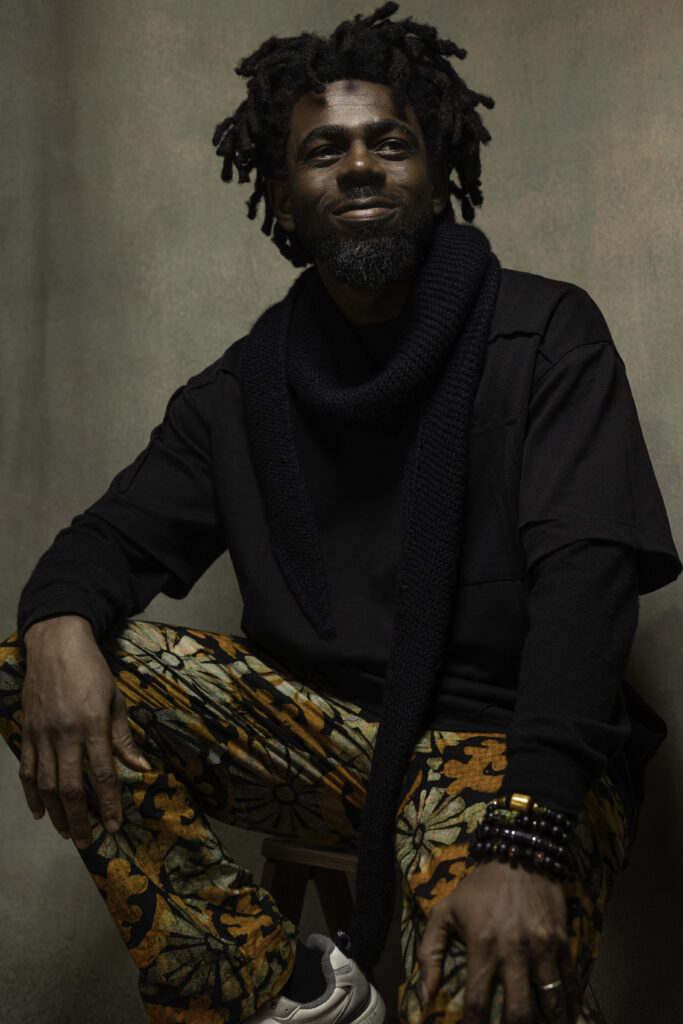
From producing Nigeria’s first virtual reality documentary In Bakassi to Mothers of Chibok, and now Madu, how has your storytelling style and process evolved over time?
I use different mediums to tell my stories, both virtual reality and 2D, like immersive technologies and 2D. The medium doesn’t matter as much to me as the story. So, in terms of how my work has evolved or my approach has evolved, I think I’m increasingly becoming more intentional about what I want my stories to accomplish. I think that’s the difference. I’m still telling the same stories. I’m still drawn to the same kind of stories. I’m still drawn to the same kind of subject matter and social issues. But I think I’m trying to be a lot more intentional. We’re going to make this film, but what really do we want this film to accomplish? Beyond putting it on the big screen and people seeing it, and it’s out there in the world, but what more can this film accomplish? And so that’s what motivates me. That’s what inspires me. So being more intentional, I think, is one way I can say that my practice has evolved. I’m also very drawn to inspiring the next generation in terms of training and teaching. So, I’m starting to see myself more as not just a filmmaker who’s making my own films, but can I also contribute in my own way to equipping or inspiring or mentoring the next filmmaker, the next generation of filmmakers and storytellers?
Telling difficult truths often comes with pushback. What are some of the biggest challenges you’ve faced while creating socially charged documentaries, either on ground or in post-production and have you ever felt discouraged or creatively blocked in the course of your work, and how did you navigate those moments?
Let’s start with the first one. I think the biggest challenge you face when you’re trying to tell any real story is how do you earn the trust of your characters? How do you earn the trust of these people? And where you get to a point where they’re no longer just subjects of your documentary, but there’s a certain kind of bond that you forged with them. That’s usually a big challenge in terms of earning their trust. Because you see, if you don’t earn their trust, the story is not at its most authentic. But when you’re able to earn their trust, that’s when magic starts to happen. That’s when things start to open up, and you’re drawn into their world, you’re invited into their world that you otherwise would not be able to get access to. But when you’re doing that as well, when you get that invitation, it’s also important for you to be respectful and always try to portray your people with dignity. So those are ethical considerations as a filmmaker that you have to go through. The other things, whether it’s distance or location, are secondary. But I think those ethical considerations of how I can tell the story that is authentic and yet balanced and dignifying of my subjects. I think those are things that I constantly think about and I worry about. Funding is always a challenge, especially in the world of actual filmmaking. It’s always a challenge, where you get funds to tell the kind of stories you want to tell and have that creative freedom and independence to share it, to shape it the way you would like to shape it. But I don’t let those things stop me from pursuing the story. So, a lot of times my films always start with me using my own funds to get started and then somewhere along the road, someone says, “Hey, I like what you’re doing, I want to support you.” But yeah, I think that’s it. About being discouraged or creatively blocked in the course of your work, and how I navigate it? Stuff always happens and you would wonder how you want to navigate it. Sometimes, your character might not come through for you, or you might not just be interested in a project even when you are halfway done, or you suddenly find yourself in a phase where everything feels frozen. All these thngs happen, but I’ve come to a point where I just accept it as part of the process and keep my eyes on the big picture. I always ask myself, “Why am I telling this story?” “What is the purpose of this story?” And as long as I can always keep that in view, then everything that happens is just like a speed bump on the way. It doesn’t really stop you. It can maybe slow you down for a day or two or a week or a month. And when I make my films also, my films usually take years to make. So averagely a year and a half project is actually a fast project for me. Sometimes it can take as long as two years. So in that time, you have time to reassess the situation, maybe try a different approach, maybe try something different. But you have to keep going. As long as you keep your eyes on the big goal, the big picture, those things shouldn’t stop you. They usually don’t stop you. I keep pushing.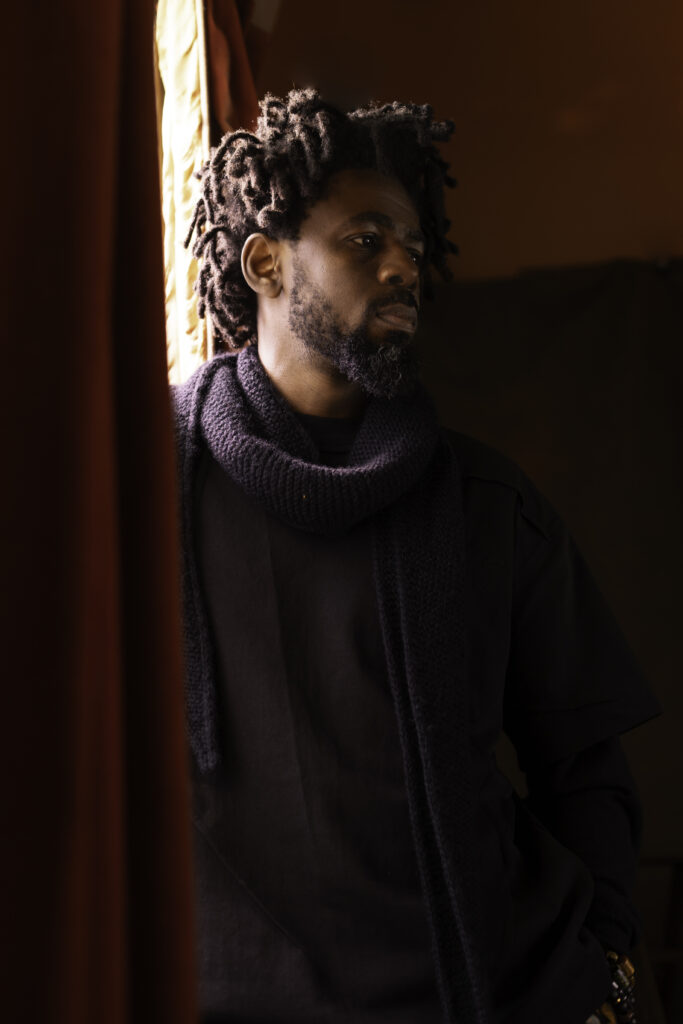
Your documentary Madu recently won the 2025 Emmy Award for Outstanding Arts and Culture Documentary. How does this Emmy Award impact your work, moving forward?
I guess winning an Emmy opens a lot of doors of opportunity. You’re able to have certain kinds of conversations with certain kinds of people. It does shift perceptions somehow and that could be a bit of a challenge. It could put some pressure on you. But I don’t allow those things to get to me. I hope I won’t allow them to get to me. You don’t allow those things to get to you. Just stay grounded in purpose. But yes, it does present opportunities to do more work. And I hope that it can continue to open more doors for us to do even more impactful work. I hope that it can also create opportunities for other people as well. I think this is proof that our stories matter. And our stories can have a global appeal. They can be on a global stage. They can travel across the world. And people can see it anywhere and appreciate it. I think all of that is what I think this Emmy is doing and can continue to do. It’s an exciting time, and I hope that we can use this to create more impactful work and inspire more filmmakers to believe that it is possible.
The story of Anthony Madu is so deeply moving. What drew you to his story and made you believe it was one that needed to be shared with the world?
Well, the story of Anthony Madu is the story of every Nigerian. We dare to dream. It’s my story. It’s the story of the kid out there who is right now on the streets of Lagos trying to figure out what’s next for me. It’s the story of all of us. My friend and co-director, Matt Ogens, was the one who brought the story, actually, to me and said, hey, look, I found this story. It’s such an amazing story. Can you check it out and let me know what you think? And so I did some research, and I met with the kid, and we had a meeting, and I said, hey, Matt, this is great. I think that there’s a story here. I see myself in this kid. I see the hopes and the aspirations of a lot of young people in this kid, and I think his story is like a mirror for us. So, yeah, that’s really what drew me to Anthony’s story. His resilience, his courage, his determination to succeed, in spite of what people were saying about him and how they were laughing at him about being a ballet dancer and all that kind of stuff, but he still stayed true to his dreams. That was really inspiring. I’m super grateful that the story was brought to me, and I was chosen to be part of the team that brought it to life. But ultimately, if Anthony hadn’t had that courage and that bravery, I don’t think we’d be having this conversation we’re having today. So kudos to him.
What was it like working with Disney and co-directing with Matt Ogens? Were there any creative tensions or surprising synergies along the way?
It was both our first time co-directing, so it was an interesting experience for us. There were good times and tough times. There were times when we didn’t quite agree on certain things. But again, like what I said earlier, sometimes when you can’t find your way, you ask yourself, Where am I going? And because we were always clear about the vision of this film and what we really wanted to do, that big vision sort of overshadowed our personal differences or our personal approaches to the work. So, we would always ask ourselves, okay, look, man, I know you don’t agree with this, and I don’t quite see it your way, but what’s the bigger story here? What’s the bigger vision here? And once we remind ourselves of that, we’re able to find our way back and say, okay, you know what, maybe we should try this. So, there was always conversation. It was a beautiful learning process for both of us, how to be better collaborators, better directors, better human beings. And I think that in the end, this ended up in a really beautiful place. I think that Madu again is such a beautiful example of collaboration, which is what filmmaking is all about, really about collaboration. I think Madu is a beautiful example of how you can really collaborate and create something beautiful for the world.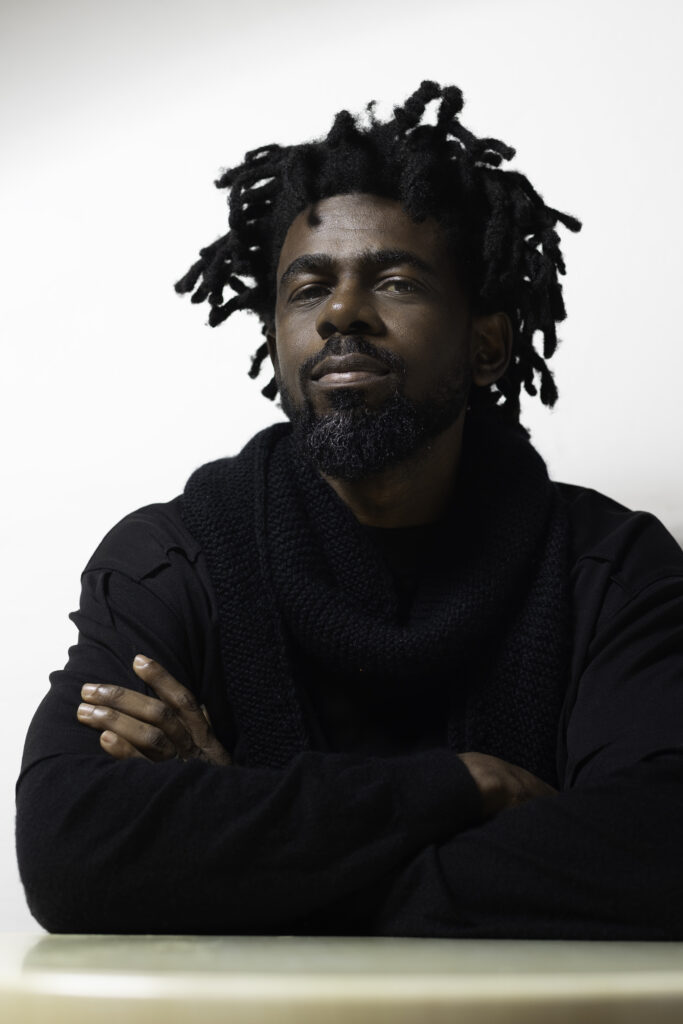
You’ve often said that storytelling can be a catalyst for positive change. Why is social impact storytelling so important to you personally, and how do you measure the impact of your work?
I measure the impact of my work by first of all defining what I wanted to accomplish. So, with Madu, for instance, one of the things I wanted to do was to use Anthony’s story to inspire young people across the world, but especially in Nigeria. And we’re working towards that. I get the emails, I get the text messages of people who reach out to me and say, hey, look, I was so inspired by this story. And part of what we’re doing right now is because Disney Plus is not really available in Nigeria, so we’re working with a production company to make the film available in Nigeria so people can watch it, young people can watch it. And just being able to accomplish that for me is success. That we’re able to say, look, this film can be available in Nigeria. We’re looking for ways whereby Anthony can engage young people one-on-one in Nigeria and just inspire them and have conversations with them. So those things are how I measure. That’s my metric for success with a film like this, because it’s really ultimately about inspiring young people, Anthony’s mates, those younger than him, even those older than him, that it’s all about pursuing your dreams with courage.
You’ve done documentary and virtual reality films, do you have any plans to explore other forms of filmmaking, such as feature-length narratives or scripted TV?
I’m making feature-length documentaries, but in terms of feature-length narratives and scripted, not at the moment. I think that there are a lot of very talented, very amazing people. I have a few friends who are amazing narrative filmmakers. It’s a great place to be. I want to stay in the documentary world for now and continue to make documentaries that challenge stereotypes. I want to be able to use my films to inspire other young people that it’s possible they can also pursue that as a career. So that’s where my head is at right now. Will I make a narrative sometime in the future? Maybe. Who knows? Stay tuned.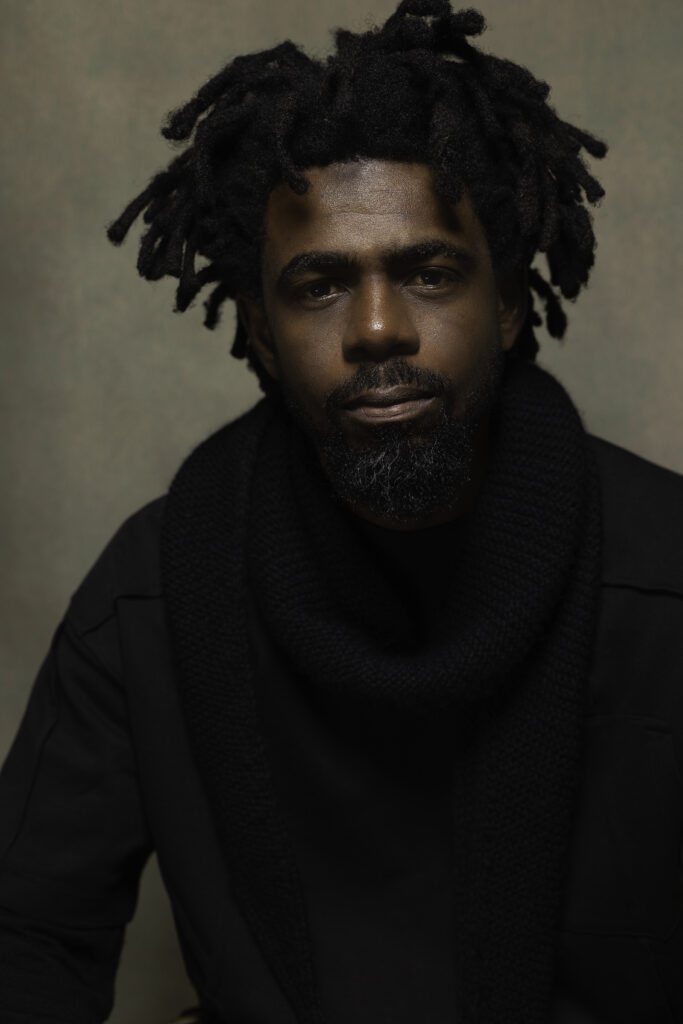
What are your creative goals over the next few years? Are there untold African stories you’re itching to spotlight next?
My creative goals over the next few years are to keep making films. I want to keep making films, but I also want to keep inspiring young people. Making films and training filmmakers are two things that are top of my agenda for now. So yeah, that’s what I’m going to be doing for the foreseeable future.
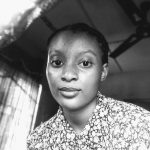
Dorcas Akintoye is a versatile writer with a passion for beauty, fashion, relationships, and culinary delight. With a keen eye for detail and a passion for storytelling, she adds a touch of elegance to every topic she explores. She is a writer at THEWILL DOWNTOWN.


